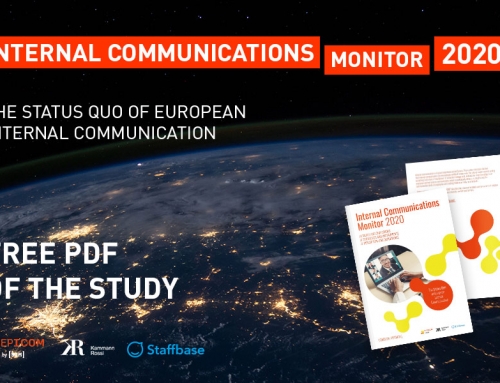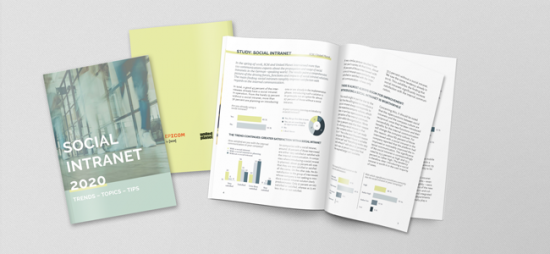The COVID-19 pandemic has initiated a powerful conversation on the importance and value of internal communications in a company. This crisis forced many organizations to shift to remote-working models practically overnight and employees have had to adapt rapidly. From their homes, employees need and want to feel more connected to their employer through its purpose, strategy and people. This is why, internal communications (IC) plays a crucial role in strengthening employee engagement in times of social distancing and helping people navigate the uncertainty we have and will continue to experience in the coming months.
A robust IC strategy is paramount in building a healthy and transparent organization
At the BBVA Microfinance Foundation (BBVAMF), we believe that a robust IC strategy is paramount in building a healthy and transparent organization. It aligns the whole institution through unified and consistent messages to employees, the backbone of an organization. Prior to the COVID-19 outbreak, our weekly newsletters, occasional emails and meetings with management kept our employees informed about the activities across the six countries where we have presence: five countries in Latin America, through six microfinance institutions (MFIs) the BBVAMF owns, and in Spain.
But by mid-March, the Communications team and the Talent & Culture department (Human Resources) had to devise a new IC landscape to respond to the abrupt transition to working from home to ensure that nobody felt left behind. That was our priority. In Madrid, we were accustomed to seeing all 50 colleagues every day at the office so we organized weekly virtual meetings with the CEO to keep us updated on our current situation and that of Latin America. Fortunately, due to the gradual progression of the pandemic from East to West, we quickly put in place health and safety measures in our MFIs to protect the more than 8,000 employees and +2.2 million low-income entrepreneurs we serve in the region. Especially, taking into account that the microfinance sector is considered an essential service and thus our activity has not stopped during the lockdowns.
CEOs should meaningfully communicate with the employees
This was only the first step, and the most important one, since it set a standard in our IC. Similarly, general managers of the six entities have shown empathy with their teams by organizing live conferences and sending video messages to all employees. These internal initiatives have proved to be one of the most valuable takeaways from the pandemic: CEOs should meaningfully communicate and connect with the employees and acknowledge their value and their contribution to the purpose of the organization, which in our case (ensuring the sustainable development of low-income entrepreneurs), has more meaning than ever in these difficult times.
At the BBVAMF, these meetings with the CEO were complemented with special sessions on strategic topics. Every week, a team took the stage to explain an ongoing project, study or any other task. Something that started as completely voluntary became a weekly routine and an opportunity for all of us to gather, ask questions, and feel connected. Again, this taught us another lesson: people need to be informed in a consistent manner about the operations and ongoings of the company, to avoid disconnection and silos across teams.
Internal communication needs to empower employees
Thirdly, and this is something applied both in the BBVAMF and the MFIs, we focused our efforts on the employees, who drive the company forward with their time and effort, especially those in the front line who deal directly with clients. For all of them, local IC teams have created communication campaigns to give visibility to their work, and recognize the speed with which they have adapted to a new way of working, since our methodology relies heavily on a physical banking model. Not only have we witnessed solidarity among all employees, but we have also seen their commitment to the entrepreneurs we serve that unfortunately are severely affected by the health crisis situation. This brings us to our last lesson learned: internal communication needs to be centered around employees, and empower them to proactively engage in the company’s purpose to ultimately reinforce their sense of belonging.
All these actions shouldn’t be seen as transient. COVID-19 presents an opportunity for many organizations, like ours, to communicate more and better, not only taking the perspective of the business’ needs and wants, but also that of the employees so they can find meaning in their work and connect with the purpose we share. They, from beginning to end, should be at the center of the narrative we try to build everyday through Internal Communications.
This article is based on a web session at the European Internal Comms conference July 14th.
Couldn’t make the live event? The recordings are available now. Get on-demand access here: Internal Comms Conference.
Author:

Julia Ortega, Communications and External Relations at BBVA Microfinance Foundation









